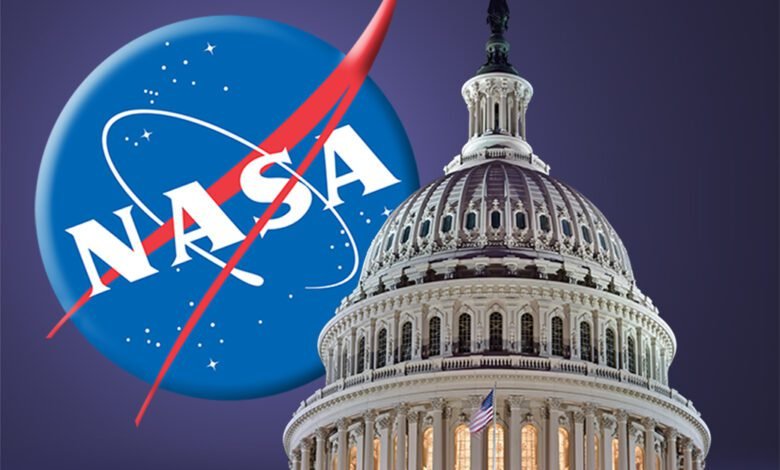Congressional letter seeks big increase in NASA science budget

WASHINGTON — More than 40 House members have signed a letter calling for a significant increase in NASA’s science budget for 2025, a request that will be challenging to meet certain spending limits.
The May 1 letter to the chairman and ranking member of the House Appropriations Committee’s Commerce, Justice and Science (CJS) subcommittee, signed by 44 members, asked appropriators to provide at least $9 billion for the House’s science programs. NASA in its fiscal year 2025 spending bill, more than $1.4 billion above the administration’s request and $1.67 billion above what the agency received for science in 2024.
The additional funding, the letter argues, would increase the purchasing power of NASA’s inflation-eroded science programs, as well as a significant cut in 2024 linked to budget caps enacted as part of a deal to raise the debt ceiling. This funding is needed for scientific missions recommended by several decennial surveys that face restructuring, delays or even cancellations.
“Under this level of funding,” the letter about the agency’s 2025 request says, “NASA would be unable to meet the scientific ambitions established by the Decadal Surveys of the National Academies of Sciences that were unequivocally supported in the fiscal year’s Consolidated Appropriations Act.” 2024”.
Providing at least $9 billion, the letter states, would allow continued support for the Geospace Dynamics Constellation mission, the highest-ranked mission of the last decade of heliophysics that NASA proposed canceling in the 2025 order. It would also support the Observatory’s mission line of the Earth System, the Return of Samples from Mars, and the development of early technology for the Habitable Worlds Observatory. The funding increase would also support existing missions, including those like the Chandra X-ray Observatory and the Hubble Space Telescope that face 2025 order cuts.
The letter was led by Reps. Don Bacon (R-Neb.), Judy Chu (D-Calif.) and Glenn Ivey (D-Md.). Bacon and Chu are the co-chairs of a revived congressional planetary science convention that seeks to drum up support for NASA’s planetary science and related scientific activities, such as exoplanet studies and the search for life. The Chu district includes the Jet Propulsion Laboratory and Ivey’s Goddard Space Flight Center, two NASA facilities that focus on scientific missions.
Forty-one other members of Congress from across the country also signed the letter. All but three of the 44 signatories are Democrats.
The letter was sent to appropriators around the same time as a Planetary Society “Day of Action” lobbying effort. Nearly 100 members of the advocacy group traveled to Washington to meet with members and seek increased funding for NASA’s science programs.
However, congressional sources doubt advocates will get any increase in science funding above what was requested, much less the large increase sought in the letter. With budget caps in place since the 2025 debt ceiling agreement, requests for funding increases will be a zero-sum game, they said, requiring cuts elsewhere at NASA or other agencies funded by the CJS subcommittee.
Speaking at a NASA Advisory Board meeting on May 8 – his first public meeting in nearly 16 months – NASA Administrator Bill Nelson lamented the “considerable restrictions” that he again placed on a “certain element of Congress” that forced the inclusion of budget limits. in the debt ceiling agreement. He estimated cuts of “close to $2 billion” in fiscal years 2024 and 2025 combined for NASA science, with no sign that he thought any of the potential cuts in 2025 could be recovered.
Another board member offered a different view on the budgetary challenges facing NASA’s science programs. “I think one of the reasons we’re having trouble with NASA’s science budget is because it’s internationally focused,” Charles Bolden, former NASA administrator and current board member, said later in the meeting. “It’s key to what NASA does internationally as a soft power tool and Congress today has no interest in anything international.”
“We have to figure out a way to help NASA tell the story of how to reignite our interest in being a global leader,” he added, “otherwise the science budget will continue to shrink.”




